From its earliest days, the United States Baha’i community has been dedicated to the cause of race unity.
This strong sense of mission in the American Baha’is was ignited by Abdu’l-Baha during his visit to North America in 1912, when he often admonished them to see no difference between black and white, to accept that all belong to one human race.
Today, the Baha’i community has been reflecting on how it can best contribute to the cause of race unity amid a growing awareness in the country about the entrenched nature of prejudice and structural injustice. “The discourse on race in America has re-surged into the national consciousness,” P.J. Andrews explains in the most recent Baha’i World News Service podcast episode. “So, it is really unavoidable to have a conversation about race in America. And we feel there is a lot to contribute from the Baha’i perspective.”
A renewed sense of purpose is discernible in the Baha’i community’s longstanding dedication to race unity. One of the ways American Baha’is have been working for this cause is through involvement in public discourse. Participation in discourses occurs in scores of community-building efforts at the grassroots, in hundreds of projects and activities for social action, in the involvement of thousands of individuals at the professional level and in other public settings, and in the official efforts of the Baha’i community on the national stage.
At the national level, the U.S. Baha’i Office of Public Affairs is leading the charge. In the latest Baha’i World News Service podcast episode, two of its staff members, Mr. Andrews and May Lample, discuss the Office’s efforts to participate in constructive social spaces exploring racial justice and unity.
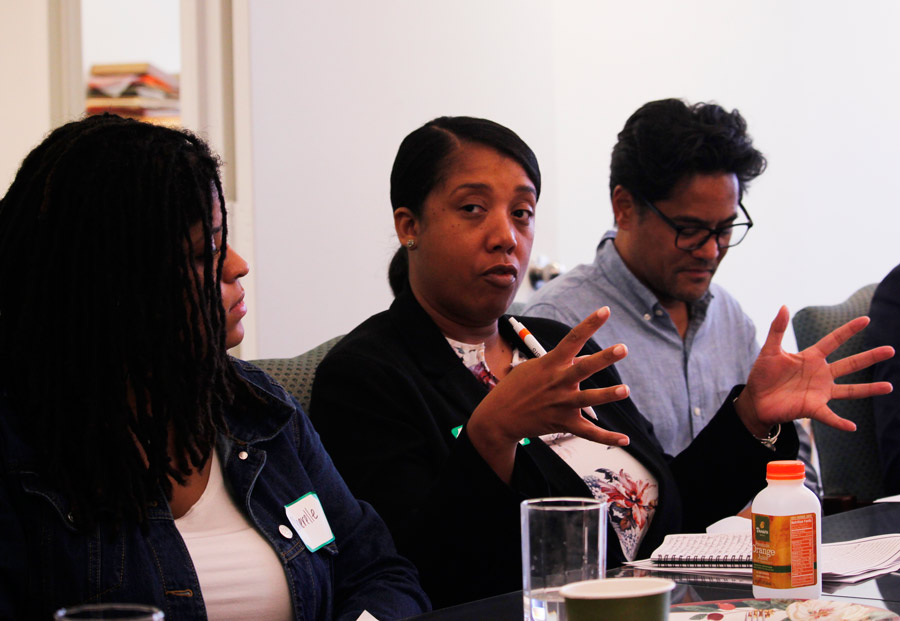
A participant in the Faith and Race Dialogue in September speaks during the gathering.
The Baha’i Office of Public Affairs has long been engaged in prevalent discourses in the U.S., such as sustainable development, the advancement of women, human rights, and, in more recent years, race. The Office has spent the past two years attending forums on race throughout the country, meeting with some of the leading thinkers on the subject, and learning with and from like-minded social actors. They have also been bringing into the discourse important insights from the Baha’i teachings. In its efforts to promote unity and contribute to discussions focused on societal betterment, the Office has interacted with lawmakers and government officials and collaborated with civil society organizations and media actors.
One of the questions the Office is asking is what role faith plays in overcoming ingrained prejudice and structural injustice. Religious communities in the U.S. have had a complicated relationship with race. Religion has inspired great acts of sacrifice and heroism for the greater good, but it has also been used to justify oppression and reinforce otherness.
Conscious of the complex and multifaceted nature of religion’s contribution to societal unity, Mr. Andrews and Ms. Lample reflect in the podcast episode on a nascent initiative undertaken by the Office—a series of national level conversations called the Faith and Race Dialogues. These gatherings bring social actors in the U.S. capital together in pursuit of overcoming and transcending racial prejudice. They are one of the many ways the U.S. Baha’i community is striving to heal the wounds of racism and explore a unifying path forward.
The Faith and Race Dialogues focus on concepts and ideas that underlie action, Mr. Andrews and Ms. Lample explain in the interview. The dialogues aim to elevate discussions above the acrimony and contention that often prevent the discourse on race in the U.S. from advancing.
The Baha’i community is not naïve about the magnitude of the challenge facing society. The Faith and Race Dialogues, Mr. Andrews and Ms. Lample say, are one modest example among the many ways that Baha’is in the U.S. are engaged in the discourse on race unity. And these initiatives across the country will need to expand and intensify in the coming years.
These efforts build on a long legacy within the Baha’i community. Since the community’s earliest days, Baha’is in the country have been trying to address the problem of racial prejudice, which Shoghi Effendi has described as “the most vital and challenging issue confronting the (American) Baha’i community…”. Abdu’l-Baha inspired the American Baha’is to initiate a series of race amity conferences in the early 20th century, and he patiently guided a racially diverse community to struggle against the forces of prejudice and disunity.
During His visit to North America, ‘Abdu’l-Baha spoke on race unity in spaces such as the renowned Howard University, a historically black college, as well as the annual meeting of the National Association for the Advancement of Colored People (NAACP), the nation’s preeminent civil rights organization. The NAACP’s co-founder, writer and civil rights activist W.E.B. Du Bois, was in correspondence with Abdu’l-Baha and published his talk as well as his photo in the organization’s magazine, The Crisis.
In a talk at the Hull Settlement House in Chicago on 30 April 1912, speaking to some of the country’s most progressive social actors of that time, Abdu’l-Baha underscored the importance of religion in overcoming racial prejudice. Despite the numerous commonalities between human beings, he explained, racial prejudice would be insurmountable without tapping the deepest wells of human potential:
… there is need of a superior power to overcome human prejudices, a power which nothing in the world of mankind can withstand and which will overshadow the effect of all other forces at work in human conditions. That irresistible power is the love of God. It is my hope and prayer that it may destroy the prejudice of this one point of distinction between you and unite you all permanently under its hallowed protection. – Abdu’l-Baha, The Promulgation of Universal Peace, p. 68.
Listen to a podcast about the Faith and Race Dialogues at news.bahai.org/podcast.


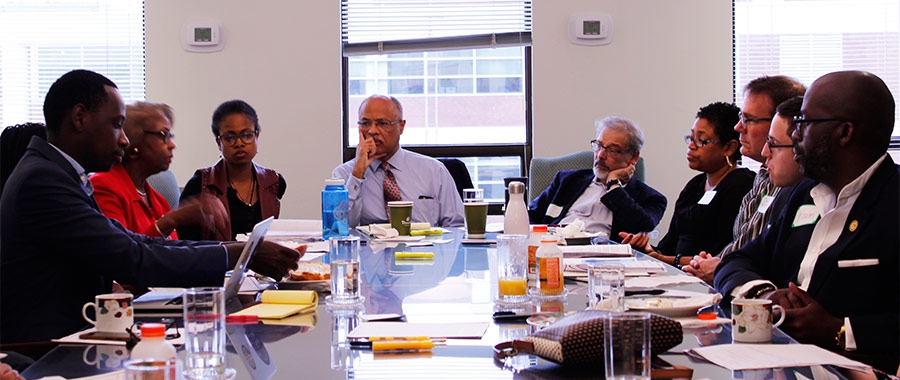

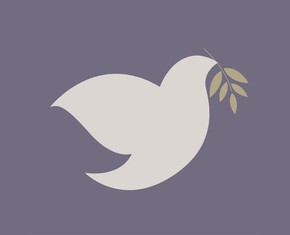
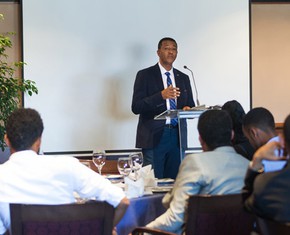
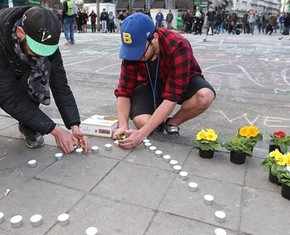









Comments
Sign in or create an account
Continue with Googleor